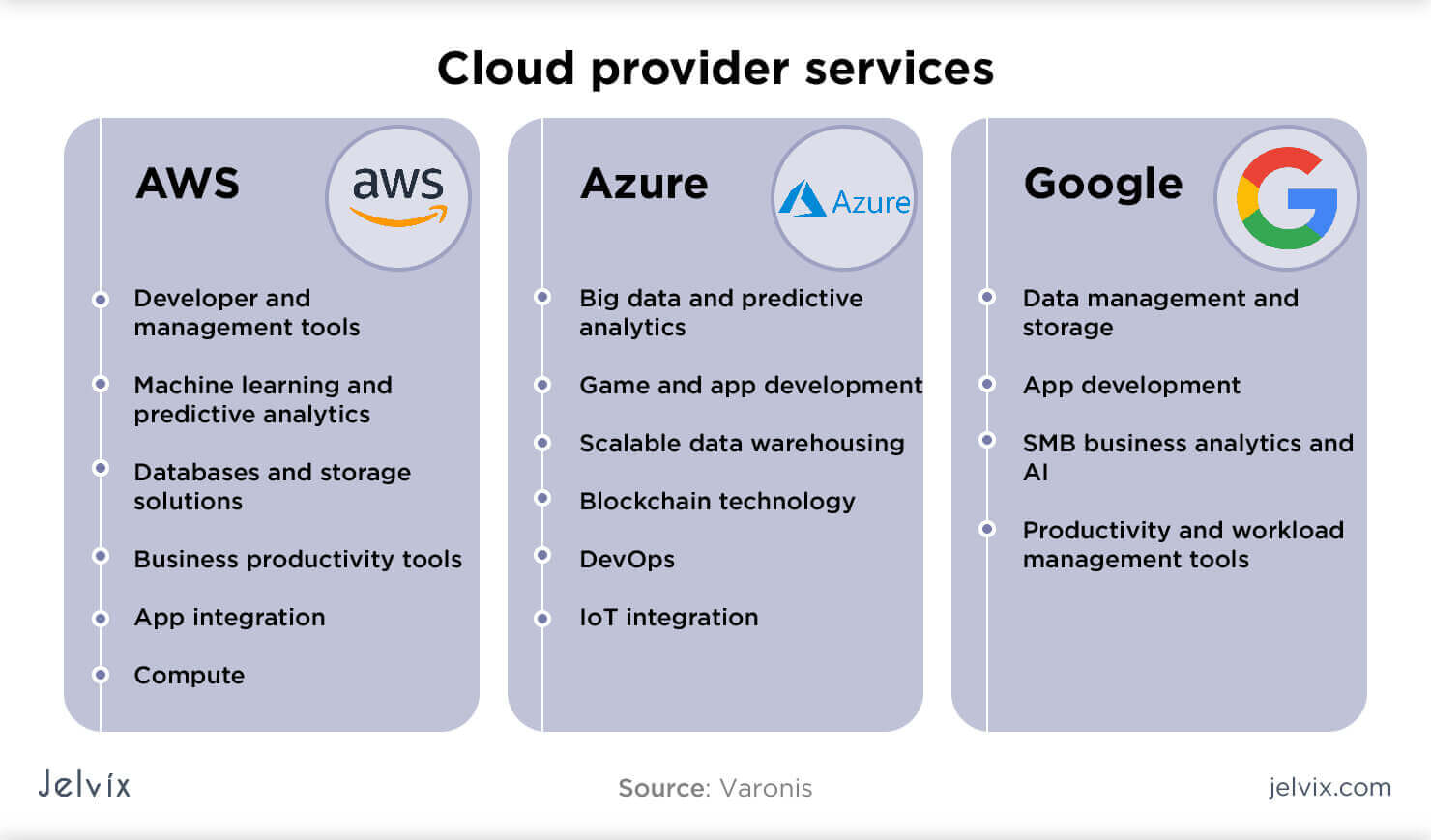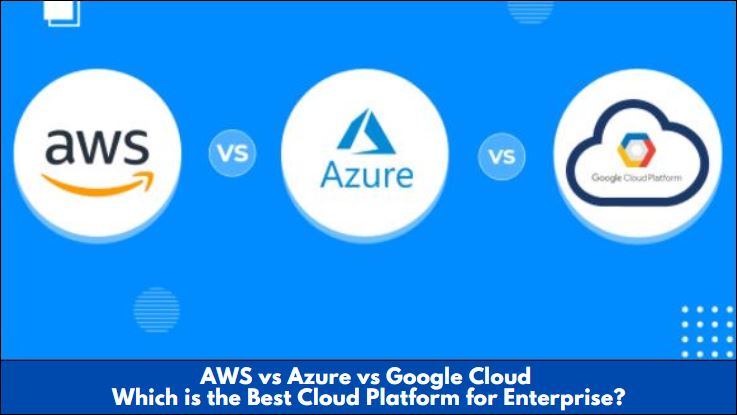Amazon, Microsoft, and Google have been consistently ruling the public cloud genre for a few years, offering reliable, secure, and trusted cloud services. Their individual cloud platforms – AWS, Azure, and GC platforms present to their clients a variety of computing, storage, and networking alternatives.
Few of the aspects popular among these three platforms cover quick-planning, auto-scale, self-service, compliance, security, identity management, etc.
The Adoption
Today businesses have graciously adopted cloud computing which has been a vital drive for them. Infrastructure-as-a-service [IaaS] acts as a model when a third-party provider holds over the key infrastructure covering software, hardware, storage, servers from the customers’ end. It also covers application hosting in an extremely scaled scenario. The three huge public cloud vendors named AWS, Azure, and Google Cloud are greatly addressing the evaluation of security and data authority. When it appears to the adoption of cloud platform services, only the regularized businesses pace cautiously.
Currently, AWS can be reflected upon as greater than Azure and GCP with reference to maturity and functionality, leading with the most regularized businesses that are constantly pacing ahead carefully.
According to Nick McQuire, Vice President of Enterprise Research at CSS Insight, “Since last twelve months, a big arms race is going on in the cloud computing, but we have begun to notice few real differences between cloud providers as regards to the deals they are gaining in the market.”
Select the Best Cloud Service Provider
While selecting a cloud service provider, one has to focus on the most common angles. The important angle to reflect upon is its supportive availability and regions. These put a straight impact on the action of your cloud, because of factors such as compliance and latency needs, while managing with data.

Azure has the widest geographical coverage, in comparison to the other two. Azure providers have stretched their coverage areas worldwide by adding various zones and regions in order to meet the accelerated computing demands.
A Three-party Battle
The key differences between the three main cloud services can be viewed by analyzing them closely applying several parameters like storage, compute, documentation, multi-cloud support, databases, and locations.
- Storage: AWS [S3 – simple storage service] is considered as an excellent option for storage along with large-scale documentation, trialed and tested technology with accurate community support. Though Microsoft Azure and Google Cloud storage provide authentic storage services, Azure is heading ahead.
- Compute: AWS is offering an elastic compute cloud [EC2] which manages every computes service efficiently by handling the Virtual Machines [VM] having pre-configured settings and user configuration where required. Whereas Microsoft Azure provides VMs and VM scale sets, and GCP offers Google Compute Engine [GCE] that executes the same operations.
- Documentation: These three vendors provide excellent-quality documentation. Still, it is considered that AWS is beyond Azure and GCP.
- Multi-cloud Support: AWS, Azure, and Google Cloud have elevated themselves in terms of multi-cloud infrastructure. AWS was the first cloud player, among other two, to make its presence in the multi-cloud game along with Elastic Kubernetes Service [EKS], and Elastic Container Service [ECS], letting its users handle their K8s and applications and containers on the Azure and Google Cloud.
- Databases: Amazon’s Relational Database Service [RDS] offers support to vital databases like PostgreSQL, and Oracle, and handles every single thing. In comparison to it, Azure SQL provides SQL database managing aspects for Azure, and Cloud SQL for GCP, which is less than AWS in terms of database offering.
- Location: AWS, Azure, and GCP present substantial coverage across the globe. Where Amazon has the most availability zones of approximately 77, Azure has its presence in 60 regions and Google has in 33 countries.
AWS – the leading Cloud Platform
Earlier AWS was the leader in cloud computing and reigns to lead currently. AWS has become a vital performer in AI/ML, Database, and Serverless deployments. The vital strength of AWS for being the market leader goes along in-depth with its services, comprising 175+ across the storage, database, compute, IoT, management tools, developer tools, enterprise application, and networking.
Nicholas McQuire, Chief of Research, Enterprise at CSS Insight quoted, “No doubt in saying that AWS wins on the basis of developer functionality because of the breadth of its services. AWS has executed a great job in the translation of its scale into economic advantages for its customers, though times may appear where cloud can be cost-effective.”
As per the Canalys reports in April 2021, the cloud market worldwide developed by 35% to $4.8 billion. AWS comprises 32% of the cloud market, which is followed by Azure having 19%, followed by Google having 7%.
Jeff Bezos conveyed, “AWS had a unique benefit of seven-year upper-hand before coming across the similar competition in the market. Thus, AWS services are the most developed and richly operational.”
The communicative experience discussing with the cloud customers is found to be true. It has become quite clear that in the matter of AWS vs Azure vs Google Cloud market platform, AWS has surely become a significant lead with their marketing share moving steadily with an excellent cloud service market share, overcoming Azure and GCP market share.
Summing up
Microsoft and Google are giving AWS tough competition. Although AWS is the latest market leader in respect to capacity and services. AWS holds a powerful intensity on the enterprise. With the market evolving drastically, many enterprises are focusing on multi-cloud strategies for investing in the capabilities presented by each cloud provider. Hence, you have to select the best one for your enterprise, that is, Azure. Feel free to share your views through comments!
Sanghamitra Roychoudhary
Latest posts by Sanghamitra Roychoudhary (see all)
- DevSecOps: Integrating Security into your CI/CD Pipelines - May 24, 2024
- 8 Top Challenges of Cyber Security in the Digital Age - April 27, 2024
- 7 Best Practices for an Effective DevSecOps Implementation - April 26, 2024

